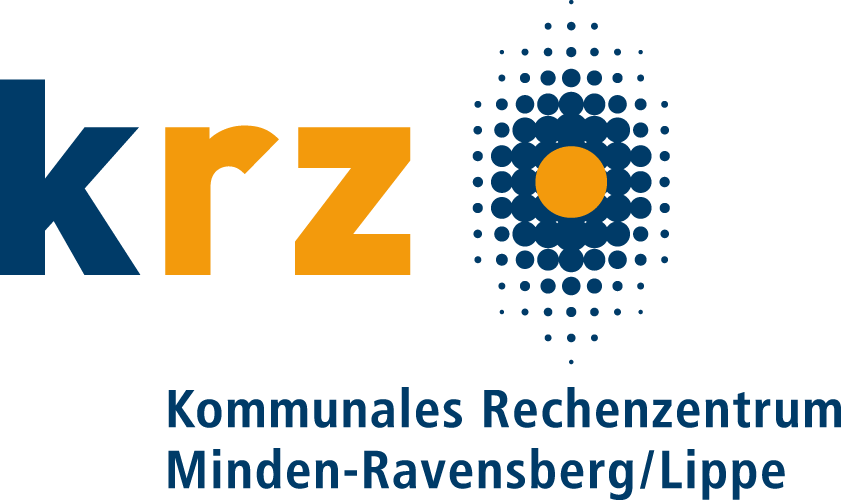
"The changeover was extremely complex, so we needed Compart's support at the beginning of the project."

A question of standards: Automated document mailing with sorting
Despite pervasive digitalization, paper still reigns in Germany's municipalities. krz in the city of Lemgo sends approximately eight million letters by regular mail per year on behalf of the districts of Minden-Lübbecke, Herford and Lippe. The company uses DocBridge® Pilot to prepare the documents for printing and mailing. Standardized and automated.
8 million letters per year by regular mail
Reduced postage by automatic sorting and bundling
High process reliabilityNear-zero error risk
Elaborated document analysis
Since January 2018, Germany's administrative bodies are legally required to communicate with its citizens via De-Mail. Nonetheless, it remains to be seen if and how this electronic channel will triumph over traditional mail. Dirk Niemeyer of the Minden-Ravensberg/Lippe Municipal Data Center hardly thinks the "switch will flip" over night. "Secure mail solutions like E-Post and De-Mail were touted long and hard, but they still don't play a major role. It's questionable whether these format-dependent media are even able to sustain a changeover to electronic mailing. Instead, format-independent and content-oriented media like HTML5 seem far more promising.“
The Production Business Head of the data center in Lemgo is certain that the widespread transition to digital communication in the public sector will take some time. He has no doubt that it will come – after all, the eGovernment Act (EGovG) requires all cities and municipalities to convert from paper to digital record-keeping by 2020.
Print volume is rising, as are expenses
Yet paper still dominates output management in the public sector. At krz, for example, most documents are still mailed, even though communication is possible through De-Mail and E-Post. Every year, the in-house printing and mailing center produces nearly 30 million pages, bundles them into eight million mailings and then places them in envelopes: social benefits notices, election information, fine notices, consumption bills, property levy notifications, invoices, registration confirmations, etc. Most are wage statements. More than 180,000 employees in public agencies and institutions currently receive their wage statements from Lemgo. The largest municipal print provider in North Rhine-Westphalia is krzn.
And the print volume keeps growing, especially the number of pay statements. What initially sounds like a good thing proved to be an obstacle in the past. Because of the number of different customers the data center serves, sorting the documents took more and more time. Each client had numerous small print lists that were not so easily merged for mailing.
Wanted: software for automatic sorting
What they lacked was a technology for automatic bundling of wage and salary statements for optimal print handling. So Dirk Niemeyer and his employees decided to introduce DocBridge® Pilot software. Using the tool developed by Compart, krz can now sort pay statements by client and merge them with their respective subclients into a print stack, complete with a cover and final sheet. DocBridge® Pilot also checks whether documents that are generated only once a year can be allocated to one personnel case (e.g., annual income statements or Tax Data Transmission Regulation (DUEV) certificates). These documents used to be printed, stuffed in envelopes, and mailed separately. With the new solution from Compart, krz uses far fewer envelopes and saves significant postage.
Bundling is one major advantage of DocBridge® Pilot; eliminating manual sorting saved two full working days.
But client-specific stack processing of wage and salary statements is just one aspect. Things get really challenging when DocBridge® Pilot is used for standard documents. The goal here is to analyze all documents and prepare them automatically for electronic and physical mailing. Neither the applications that generate them nor the format required for delivery matter. Niemeyer recalls it was no easy undertaking. "The changeover was extremely complex, so we needed Compart's support at the beginning of the project.“
Establishing a workflow that supported reliable document analysis proved especially difficult. That workflow is a now a reality. Basically, every piece of correspondence gets a document key (ID) that contains all the necessary data for automatic processing. The key contains information that answers questions such as: What kind of document is this (e.g., fine notice, kindergarten fee, social benefits notice)? What should be done with it (e.g., archive, send by physical or electronic mail)? What references are included (e.g., contract/order number, file number, match code)? DocBridge® Pilot is appropriately configured to first analyze the files from the specialist applications.
The software compares the document IDs with a stored control table. The key defines how the document is further processed. At the same time, the system generates a corresponding report with the associated data sets. If the document is destined for electronic mail, the system checks whether the recipient even has an account for electronic delivery. If so, a validation is needed to determine whether the file number in the given specialized process matches the name and the mailing address. Only then is electronic delivery secure.
Metrics: near-zero error risk
Dirk Niemeyer and his employees are pleased with the new workflows. The main goal was achieved: existing manual processes were optimized and standardized. Costs are also significantly lower, according to the manager. They saved two working days just by eliminating manual sorting. Process reliability rose at the same time. "Thanks to DocBridge® Pilot, human error during processing is virtually impossible," states Output Manager Jan Tümce matter-of-factly.
He especially likes the high degree workflow automation with the Compart solution. Every physical and electronic output channel can be "equipped" as desired. Add to that the sophisticated options for detailed monitoring. "One of DocBridge® Pilot's greatest strengths is the ability to compress large output files." He also appreciates that Compart software is based on a relational database. Tümce explains that this principle makes it easy to arrange objects and fields in a document as needed, to research them or read them outr.
Planned: Even better use of bulk mail discounts
The introduction itself went off without a hitch, states Tümce. "Thanks to expert support from Compart, we were able to detect and eliminate problems early on. It was evident that Compart's knowledge of the workflows in document and output management is excellent." The company is a known quantity on the market with a reputation to match. Tümce also praises Compart's competent developer team and exceedingly professional support staff.
The endeavor was so successful that krz decided to implement another Compart software product: DocBridge® FileCab – an application that can be used to embed individually created documents (from field representatives, PC workstations in branch offices, external service providers, partners, and related organizations) into central output management. Customers anticipate much lighter workloads through the elimination of manual tasks as well significant cost savings through the optimal utilization of bulk mail discounts.
Minden - Ravensberg/Lippe Municipal Data Center (krz)
The Minden-Ravensberg/Lippe Municipal Data Center (krz) is a public corporation in the form of a special-purpose association. It is funded by the three districts of Minden-Lübbecke, Herford and Lippe as well as all 36 cities and communities in these regional districts. krz was founded in 1971 and is headquartered in Lemgo. Its core responsibilities include the development, implementation, and maintenance of specialist applications for local municipal administrations, professional operation of the data center including providing the network technology and hardware as well as services such as consulting, training, installation, maintenance, and support.
krz has more than 270 employees and is known for its strong data protection. It was the first municipal service provider in Germany certified by the Federal Office for Information Security (BSI). krz currently supports approximately 8,000 PC workstations with nearly 10,500 end devices in the municipal administrations of the associated area. Data availability is nearly 100% and data access by customers is guaranteed around the clock throughout the entire year. Today, cities and communities that serve over 11.5 million residents use krz applications and technologies and rely on its services.
The in-house printing and mailing center produces nearly 30 million pages a year, bundles them into eight million mailings, places them in envelopes, and sends them to nearly 550 customers throughout Germany. Seventeen employees handle these tasks.



